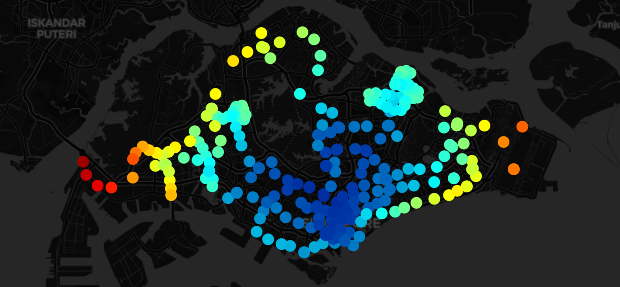
Expansion of the MRT/LRT rail network is a major part of the Singapore Land Transport Master Plan 2040. As the rail network would be over half a century old by then, I wanted to take a look at how its fastest available routes have changed in the past, and how we can expect them to change in the future. So here is a program to calculate the fastest path between any 2 train stations, similar to the countless travel mobile apps out there, but for all known and projected stages, from the initial launch in year 1987 to 2040 and beyond. ...more